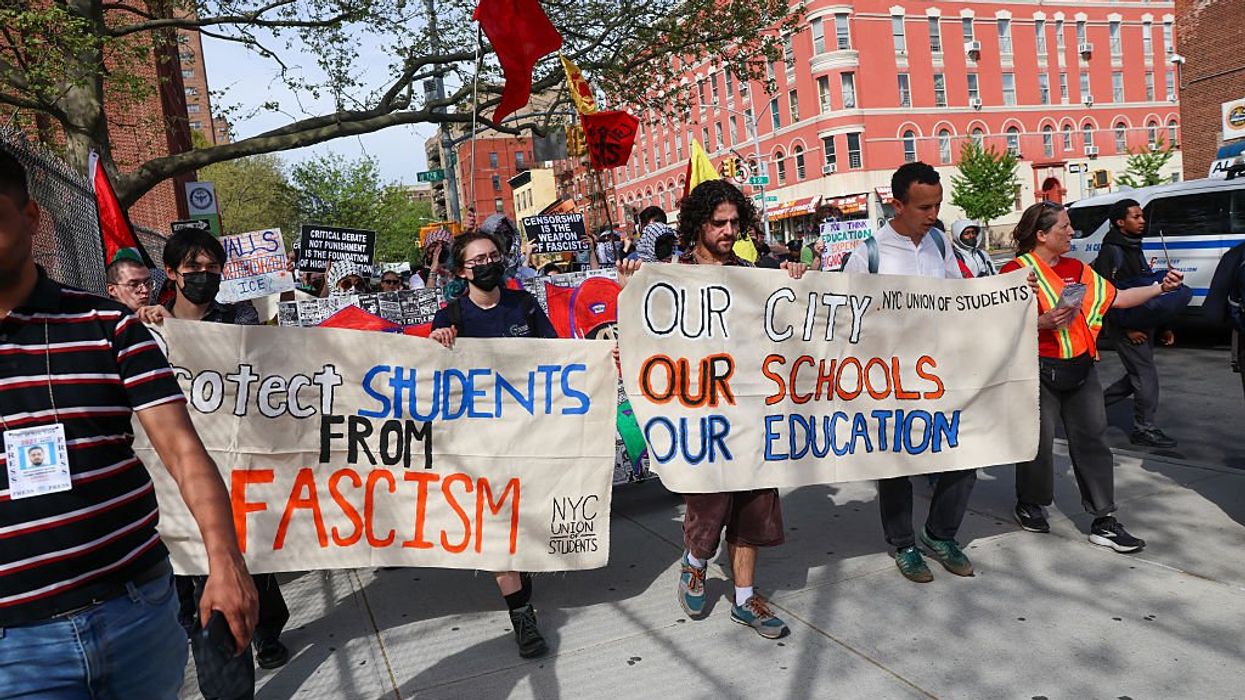"Your moment is now," Rep. Jasmine Crockett (D-TX.) recently told the graduating class at Tougaloo College in Jackson, Mississippi, in her commencement speech.
This year, such messages to graduates have a dramatic social-political backdrop.
Thousands of permanent residents and visa-holders — especially students who have been involved in pro-Palestine activism on campus — have been targeted by U.S. Immigration and Customs Enforcement (ICE). In recent weeks, students from Tufts University, Dartmouth College, Cornell University, Georgetown University, Brown University, and the University of Alabama have all been detained. The Trump Administration seems intent on harassing these students, even demonstrating a willingness to defy court orders and push the United States into a constitutional crisis.
Twenty-one-year-old Yunseo Chung was born in Korea but has lived in the U.S. since she was seven years old. Valedictorian of her high school, she was a junior at Columbia University studying English and Gender Studies when ICE started tracking her.
Yunseo, a legal U.S. permanent resident, was targeted because in March she participated in a pro-Palestine campus sit-in. While Columbia administrators did not find that she violated any school policies, the White House is trying to deport her. She is in hiding while her lawyers are suing the Trump Administration on her behalf.
For an international student, immigrant, or someone who comes from a mixed-status family, this is terrifying. For a U.S. citizen, young woman, person of color, queer or trans person, they are likely feeling anxiety or the hollowness of depression with the daily barrage of bad news from Washington, D.C.
The threats are very real. As a university professor of political science, I feel the weight of these worries of students in my classroom. In my classes, we discuss current events and history, but we also share the feelings that these lessons evoke. As for students across the country with these worries, I see you. I also firmly believe that young people will be powerful agents in the resistance movement.
History teaches that students and youth can bring much to the table in a moment such as this one. During the Civil Rights Movement, predominantly Black college students formed the Student Nonviolent Coordinating Committee (SNCC), a vanguard branch of the movement focused on direct action.
High schoolers and even younger students walked out of class to protest segregation during the Children’s Crusade. Students for a Democratic Society was founded in 1959 and made the statement, “Make Love, Not War,” a universal cry for peace.
Understanding history is especially important given the proclivity of the current administration to erase the stories of women, LGBTQIA+ Americans, and people of color. Some cues to take from these past young activists are the power of non-violence and moral authority, the effectiveness of in-person coordination and mass assembly, and the power of images to change the narrative and sway public opinion.
Thankfully, experts on Gen Z have found that a common trait of this generation is problem solving. Dr. Corey Seemiller, Leadership Studies professor at Wright State University, argues that Gen Z “does not sit back and wait for others to create a solution.”
For instance, GenZ and Gen-Alpha activists have taken important stands in the areas of freedom from gun violence with the March for Our Lives movement to action on climate change with the Sunrise Movement, which spearheaded May Day protests across the country on May 1, called “Stop the Billionaire Agenda.”
From younger generations’ perspectives, waiting for others to act on important issues is not an option. Right now, international students, immigrants, and minority groups are under attack. Legally, when marginalized groups’ rights are eroded, everyone loses the ability to defend those rights in court.
The rights of the accused — which can be found in the Fourth, Fifth, Sixth, Eighth, and Fourteenth Amendments to the Constitution — are vitally important protections, even for those who carefully obey the law.
America is being put to the test. As a Millennial, I am not stepping aside and asking younger generations to “save us.” Many generations need to come together to protect those at risk and fight for democracy. Younger generations and the generations to come will create new ways to fight back.
All are welcome in the resistance.
Isabel Skinner is an assistant professor in the School of Politics and International Affairs at the University of Illinois Springfield and a Public Voices Fellow with The OpEd Project.



















